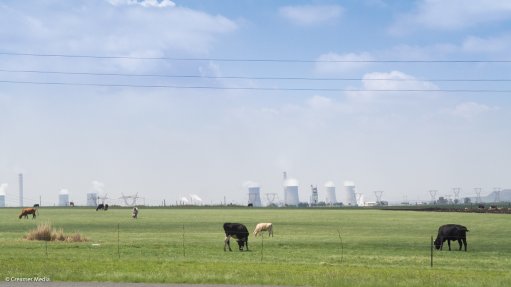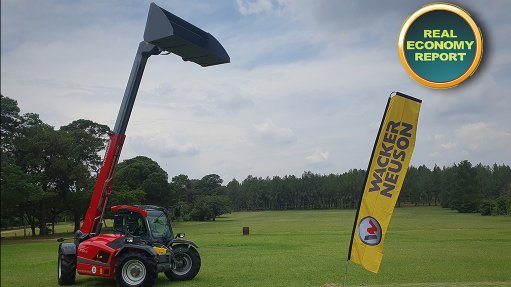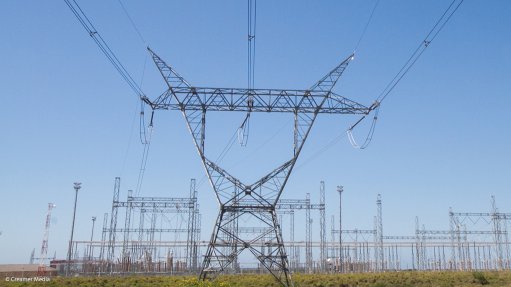Radical? Really?
Roughly in the middle of September, speaking on the sidelines of the annual general meeting about his luxury goods businesses holding company, Switzerland-based Compagnie Financière Richemont, in Geneva, business mogul Johann Rupert, generally regarded as South Africa’s richest man, said: “Radical economic transformation is just a code word for theft. That’s what’s happening here [in South Africa]. And it’s public knowledge.” (Compagnie Financière Rupert holds 50% of the voting rights in Compagnie Financière Richemont.)
Bizarrely, for stating what many South Africans, including supporters and members of the ruling African National Congress (ANC), regard as the blindingly obvious, the ANC issued an official reaction criticising him. This criticism was also bizarre because, back in late June, South African and ANC Deputy President Cyril Ramaphosa had spoken on the topic at the Gordon Institute of Business Science. “Part of the problem with the current conversation about radical economic transformation is that the term has often been misused, misrepresented or misunderstood,” he stated. “It has therefore become accepted in many quarters that the term ‘radical economic transformation’ is often deployed to either mask or justify activities that could be best described as State capture.” Rupert’s comments were basically a terser, blunter, repackaging of Ramaphosa’s. The spat did Rupert no harm, but made the ANC look foolish.
Ramaphosa did, it must be noted, try to reclaim the term ‘radical economic transformation’ from those people and factions focused on State capture. He pointed out that the phrase was originally employed in the Medium Term Strategic Framework that government adopted during 2014. “[It] is therefore not a break with existing policy. It does not represent a new, uncertain, path. Radical economic transformation indicates a new phase of accelerated implementation of the long-standing economic policy positions of the ANC and government.” That is his view. Unfortunately, we do no know if that is, or was at the time (only three years ago), the view of President Jacob Zuma and those of his Cabinet Ministers who are his closest supporters and often seen as participants in attempts at State capture.
Words are important, as renowned British author and essayist George Orwell powerfully pointed out, particularly in his dystopian science-fiction novel, 1984. Now, many years ago, I had a copy of a book by the great British political scientist Professor SE Finer, called Comparative Government (a classic text, by the way). I have never forgotten his description of the logical manner with which the French (academics, commentators, journalists – heck, everyone interested in politics in that country) approached political analysis. They would look at what words, terms or titles really meant and then at how politicians actually used them, or, more often, misused them for ulterior purposes. For example, France had a political party called the Radical Socialists (today, the Radical Party). French commentators would point out that a socialist party was radical by definition. So a name like Radical Socialists was a tautology. The only sensible reason for a tautological name was to distract people in order to hide something. And what was there to hide? That the Radical Socialists were to the right of the Socialist Party, not to the left. And, indeed, the Radical Socialists were to the right of the Socialists.
Now, The Penguin English Dictionary defines transformation as “the act or an instance of transforming or being transformed”. In turn, ‘transform’ is defined as “to change or change (something) radically”. So, transformation is by definition radical and “radical transformation” is, again, a tautology. It sounds impressive – what is the term hiding?
Let’s be blunt about the South African economy today. A mountain of evidence gathered and released by the Competition Commission, since it was set up in 1998, has established that the country’s private sector is dominated by Corporate Cartel Pseudo-Capitalism. In sector after sector, big business has been shown to have rigged the system to subvert the free market and exploit consumers. The most appalling example was the utterly disgraceful bread cartel, which shamelessly exploited the poorest people in the land. Cartels also colluded on tenders for government contracts, inflating prices and so, in the end, exploiting taxpayers. The situation has been so bad that, today, if the Competition Commission announces it has evidence of a cartel, the companies concerned are simply assumed, by nearly everyone, including the media, to be guilty as charged. Of course, the ability of government and the ANC to attack local big business for its cartel behaviour has been almost totally undermined by their appallingly bad stewardship of major State-owned companies with monopoly control of key sectors of the economy (most obviously, national electricity utility Eskom), resulting in huge damage to the economy and the loss of all too many jobs.
Back to the main topic: I would argue that the real aim of the “radical economic transformation” programme of President Zuma and his faction in the ANC and their allies in business would be best described as “reactionary economic adjustment”. Quite simply, it looks to me as if they seek to replace a system of parallel sectors of largely incompetent State Pseudo-Capitalism and Corporate Cartel Pseudo-Capitalism with an interpenetrating complex of State- and Crony-Pseudo-Capitalism. It would not be in any way radical or any form of transformation. It would, however, allow politically well-connected businesspeople to get very rich, and allow politicians (or perhaps more accurately, the families of politicians) with reciprocal connections to those businesspeople to also get very rich. It would do nothing to advance the development of the country and the economy. It would do nothing to address South Africa’s socioeconomic challenges. It would only increase the opportunities for exploitation and corruption.
But make no mistake: the South African economy really needs transformation. It is structured in a manner that is decades out of date and totally unfitted to meet the challenges of the ever-accelerating twenty- first century. It cannot generate the jobs needed, nor create the opportunities the majority of people need. When all the argument over ‘radical economic transformation’ is over, a genuine radical change will still be essential.
Article Enquiry
Email Article
Save Article
Feedback
To advertise email advertising@creamermedia.co.za or click here
Comments
Press Office
Announcements
What's On
Subscribe to improve your user experience...
Option 1 (equivalent of R125 a month):
Receive a weekly copy of Creamer Media's Engineering News & Mining Weekly magazine
(print copy for those in South Africa and e-magazine for those outside of South Africa)
Receive daily email newsletters
Access to full search results
Access archive of magazine back copies
Access to Projects in Progress
Access to ONE Research Report of your choice in PDF format
Option 2 (equivalent of R375 a month):
All benefits from Option 1
PLUS
Access to Creamer Media's Research Channel Africa for ALL Research Reports, in PDF format, on various industrial and mining sectors
including Electricity; Water; Energy Transition; Hydrogen; Roads, Rail and Ports; Coal; Gold; Platinum; Battery Metals; etc.
Already a subscriber?
Forgotten your password?
Receive weekly copy of Creamer Media's Engineering News & Mining Weekly magazine (print copy for those in South Africa and e-magazine for those outside of South Africa)
➕
Recieve daily email newsletters
➕
Access to full search results
➕
Access archive of magazine back copies
➕
Access to Projects in Progress
➕
Access to ONE Research Report of your choice in PDF format
RESEARCH CHANNEL AFRICA
R4500 (equivalent of R375 a month)
SUBSCRIBEAll benefits from Option 1
➕
Access to Creamer Media's Research Channel Africa for ALL Research Reports on various industrial and mining sectors, in PDF format, including on:
Electricity
➕
Water
➕
Energy Transition
➕
Hydrogen
➕
Roads, Rail and Ports
➕
Coal
➕
Gold
➕
Platinum
➕
Battery Metals
➕
etc.
Receive all benefits from Option 1 or Option 2 delivered to numerous people at your company
➕
Multiple User names and Passwords for simultaneous log-ins
➕
Intranet integration access to all in your organisation


















